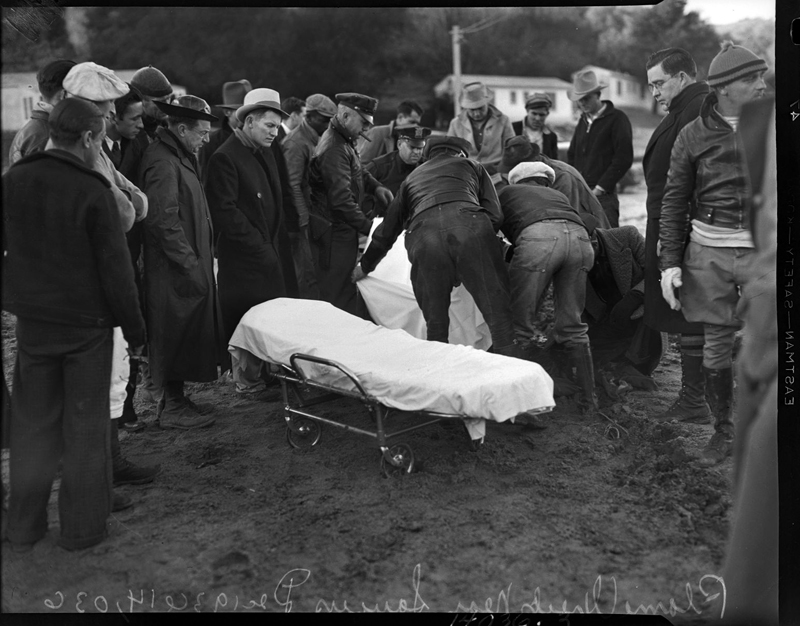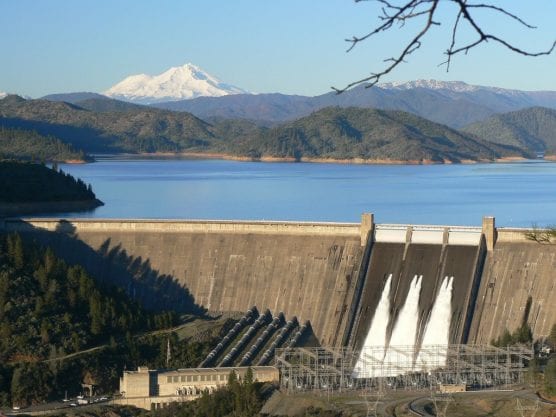SACRAMENTO – The Trump administration’s push to raise the Shasta Dam – and flood a protected river stretch in the process – suffered another blow Friday after a major California water supplier announced it was temporarily pulling out of the contentious deal.
The project’s main investor, Fresno-based Westlands Water District, agreed to settle a lawsuit filed by the state and cease involvement with the federal government’s $1.3 billion plan to raise the height of the dam at Shasta Lake in Northern California, one of the country’s tallest and most iconic dams.
Last May, California Attorney General Xavier Becerra along with fishing and environmental groups sued Westlands after discovering the agricultural water supplier was preparing to spend more than $1 million on project environmental reviews.
The groups said Westlands was working on a project that it knew would flood the McCloud River, damage a native trout fishery and destroy Native American cultural sites.
Becerra, who has sued the Trump administration over a variety of environmental issues, argued that Westlands’ planning violates the state’s Wild and Scenic Rivers Act, which prohibits new development on the McCloud and a number of other California rivers.
“This unlawful project would have hurt the McCloud River and the communities and species that depend on it,” said Becerra in a statement. “You might have friends in Washington D.C., but that doesn’t place you above the law.”
By stepping in to prevent Westlands’ involvement with the dam expansion, Becerra and groups like the Natural Resources Defense Council and Golden State Salmon Association appear to have forced the Trump administration to find a new partner to fund the project.
In 2016, Congress enacted a law that requires at least a 50% contribution from non-federal partners on the expansion of any federally owned water storage facility.
Raising Shasta Dam, the eight-tallest in the United States at 602 feet high, is hardly a new idea but it has gained momentum under Trump despite the array of environmental evidence against it. A 2015 federal study concluded that raising the dam would adversely affect both the river’s free-flowing condition and its wild trout fishery.
Raising the dam by the proposed 18.5 feet will increase the capacity at California’s largest reservoir by approximately 14%, creating more supplies for the feds to sell farmers during wet years.
The damning study came back to haunt Westlands – and the feds – by playing a prominent role in the state’s lawsuit.
Before ultimately issuing a preliminary injunction that barred Westlands from conducting its state-mandated environmental reviews, Shasta County Superior Court Judge Dennis Buckley zeroed in on the study during oral arguments.
“But thus far, it doesn’t look good for Westlands, does it?” Buckley asked in a Redding courtroom last July.
Westlands cast the lawsuit as a stall tactic and argued the environmental reviews didn’t constitute planning. Rather, Westlands was just confirming that the conclusion from the feds’ study was accurate less than four years later, its lawyers claimed. It also notes that the bureau never issued a final record of decision on the 2015 study and that no state agency has thoroughly vetted raising the dam.
While the mammoth water agency, located hundreds of miles south of the dam, didn’t officially join the expansion project, it owns over 3,000 acres along the protected river that flows through the Shasta-Trinity National Forest.
Westlands is a major purchaser of the federally subsidized water that comes from Shasta Lake and critics said the land purchases were a sign it hoped to eventually increase its stake.
Westlands General Manager Tom Birmingham says the settlement is meant to avoid more costly litigation with the state, and that claims that it is permanently barred from the project are premature.
“Quite frankly, I’m shocked how the attorney general categorized the stipulation,” Birmingham said in a phone interview. “
Birmingham added that Westlands didn’t admit to violating the Wild and Scenic Rivers Act in the settlement and that the potential for a future study is still there.
Along with being the nation’s largest agricultural water supplier, Westlands is well-connected in the Trump administration: David Bernhardt was a Westlands lobbyist before Trump tapped him as Interior Secretary. Furthermore, according to the Associated Press, the interior is considering giving Westlands a “sweetheart” water deal that would give it permanent water rights to the federally operated Central Valley Project.
The bureau didn’t immediately respond to media requests regarding Friday’s settlement.
Per the settlement terms, Westlands will be barred from conducting an environmental review, entering into a financing agreement with the feds on the raising of the dam or buying new property intended to facilitate the project.
Environmental groups applauded the settlement and claimed victory in one of their many disputes with the Trump administration.
“This is an important step in our fight to stop the Trump administration from running roughshod over California’s environment,” said Ron Stork of Friends of the River, a California river protection organization.
The Pacific Coast Federation of Fishermen’s Associations called the plan a “salmon killing project that threatens millions of fish and thousands of jobs by trapping the Sacramento River behind an even bigger concrete curtain.”
The coalition that joined the state’s lawsuit also included the Institute for Fisheries Resources, Defenders of Wildlife and Sierra Club.
— By Nick Cahill
Like this:
Like Loading...
Related





 Tweet This
Tweet This Facebook
Facebook Digg This
Digg This Bookmark
Bookmark Stumble
Stumble RSS
RSS


























REAL NAMES ONLY: All posters must use their real individual or business name. This applies equally to Twitter account holders who use a nickname.
0 Comments
You can be the first one to leave a comment.